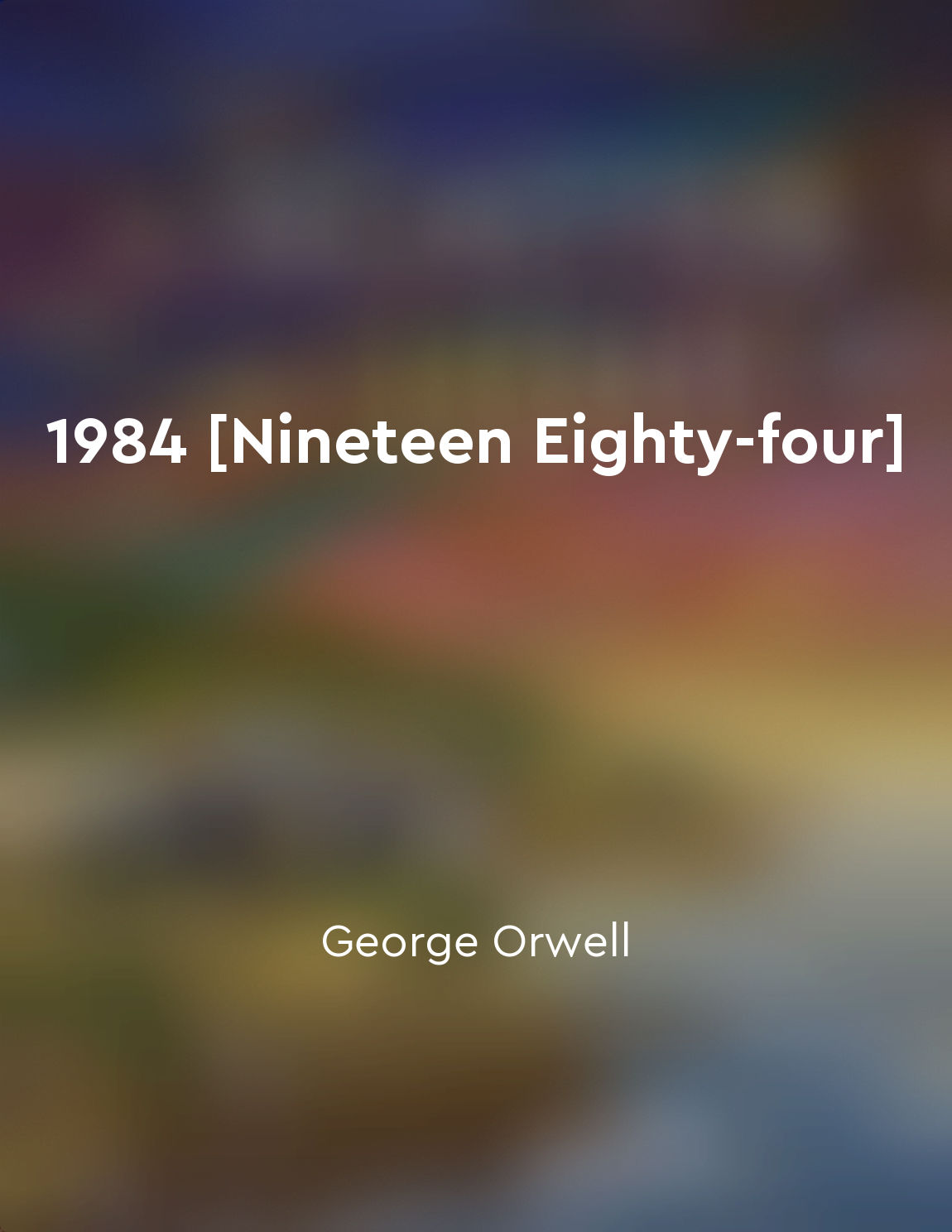The struggle for power corrupts even the most idealistic individuals from "summary" of Darkness at Noon by Arthur Koestler
Rubashov’s journey in 'Darkness at Noon' serves as a poignant illustration of how the relentless pursuit of power can lead to the corruption of even the most idealistic individuals. As a dedicated Communist revolutionary, Rubashov firmly believed in the Party's mission to create a utopian society based on equality and justice. However, as he climbs the ranks within the Party, he becomes increasingly entangled in the brutal and Machiavellian tactics required to maintain power. Initially, Rubashov's commitment to the Party is unwavering, as he willingly participates in the purges and betrayals that are deemed necessary for the greater good. He justifies these actions as sacrifices for the advancement of the revolution, convinced that the end goal of a communist paradise justifies any means. However, as he rises in prominence and witnesses the hypocrisy and moral compromises of his comrades, doubts begin to creep into his mind. The turning point comes when Rubashov himself becomes a target of the Party's purges, accused of crimes he did not commit. As he is interrogated and tortured, he is forced to confront the harsh reality that the Party he once revered is willing to sacrifice its own members in the pursuit of power. The betrayal and manipulation he experiences firsthand shatter his illusions, revealing the ugly truth that power is ultimately about self-preservation and dominance. In the face of his own impending doom, Rubashov grapples with the realization that the ideals he once cherished have been perverted by the corrupting influence of power. The stark contrast between his original vision of a just society and the ruthless pragmatism of the Party's leadership forces him to confront the inherent contradictions of his beliefs. Ultimately, he is left with a choice – to cling to his fading idealism and face certain death or to embrace the brutal pragmatism of the Party and betray everything he once stood for. Through Rubashov's tragic descent from idealism to disillusionment, 'Darkness at Noon' powerfully demonstrates how the struggle for power can corrupt even the most noble intentions. As Rubashov grapples with the moral complexities of his situation, readers are forced to confront the uncomfortable truth that power has a way of distorting and eroding the values we hold dear. In the end, the novel serves as a stark warning about the dangers of unchecked ambition and the seductive allure of power.Similar Posts
The pursuit of happiness is encouraged
In our society, the pursuit of happiness is not only encouraged but actively promoted as the ultimate goal of life. From the mo...
Turmoil leads to unexpected choices
When chaos reigns, our minds are thrown into disarray. The world becomes a whirlwind of conflicting emotions and thoughts, maki...
The role of religion and spirituality in guiding moral decisions
In the tumultuous world of moral dilemmas, where right and wrong blur and intertwine like threads in a tapestry, the guiding ha...
The weight of guilt can crush the human soul
In the depths of darkness, Rubashov grapples with the heavy burden of guilt that weighs upon his soul. The realization of his p...
Shadows of doubt cloud his mind
The mind is a curious thing, a labyrinth of thoughts and emotions that can either guide us towards the light or plunge us into ...

Thought police monitor and punish any dissent
In Oceania, the Party's control over the minds of its citizens is absolute. Any form of dissent, no matter how small, is seen a...
Forbidden desires fueling dangerous obsessions
In the darkness of the night, hidden desires can become a dangerous obsession. The kind of obsession that consumes your every t...
The quest for power leads to the destruction of morality
Rubashov, the protagonist of Darkness at Noon, illustrates the insidious nature of power and its corrupting influence on morali...

Putin has used the media to shape and control public perception of his government
In Russia, the media is not an independent entity, but rather a tool that President Putin has effectively wielded to shape and ...
